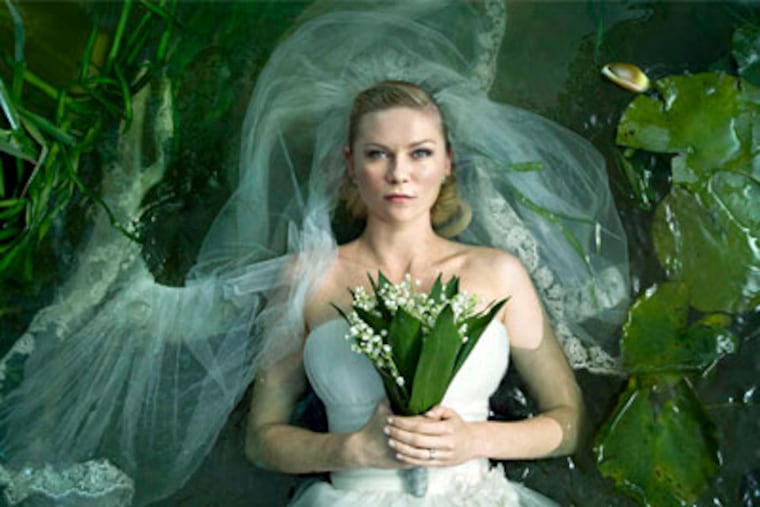Dunst is radiant in 'Melancholia'
Danish director Lars von Trier was given the heave-ho from the Cannes Film Festival this May for his embarrassing news conference and nervous-ninny jokes about Nazis and Jews, but the movie he came with - Melancholia - was nonetheless heartily embraced. The jury gave its star, Kirsten Dunst, the best-actress trophy.

Danish director Lars von Trier was given the heave-ho from the Cannes Film Festival this May for his embarrassing news conference and nervous-ninny jokes about Nazis and Jews, but the movie he came with - Melancholia - was nonetheless heartily embraced. The jury gave its star, Kirsten Dunst, the best-actress trophy.
It's easy to see why: A brooding, symphonic two-part drama centered on (1) an elaborate wedding ceremony and (2) the end of the world, Melancholia is a remarkable mood piece with visuals to die for (excuse the pun), and a performance from Dunst that runs the color spectrum of emotions. Ambivalence, dread, depression, giddiness, desire, eerie calm . . . it could have been all over the map, but Dunst inhabits this young woman - Justine, an ad agency up-and-comer - as if she has known her all her life.
Part 1 finds Justine and her groom (Alexander Skarsgård) arriving at a glamorous estate, late for their own nuptials. Justine's sister, restless and worried, is played by the sad-eyed Charlotte Gainsbourg; their mother is played by the fox-eyed Charlotte Rampling, their father by the gimlet-eyed John Hurt. (Actually, Hurt's Dexter is a hopeless drunk - his gimlet eyes are made of gin.) Kiefer Sutherland is Justine's wealthy brother-in-law, wed to Claire, the two of them, and a little boy, holed up in this impossible manse.
In Part 2, with the toasting and the dancing done, Gainsbourg's Claire becomes more of the focus, but it is Justine, really, who is the central orbit.
And speaking of orbits, a planet has appeared, suddenly, alarmingly, in the sky, and appears to be on a collision course with Earth.
Brace yourself.EndText